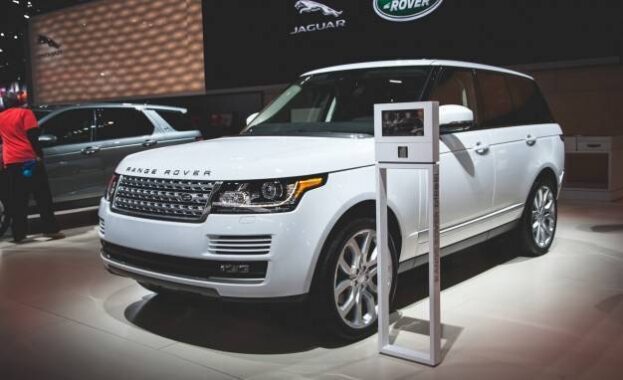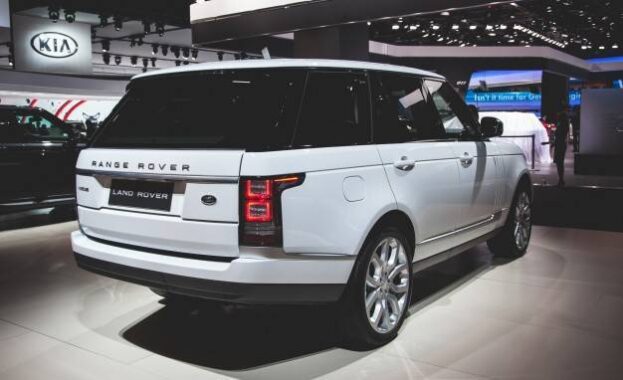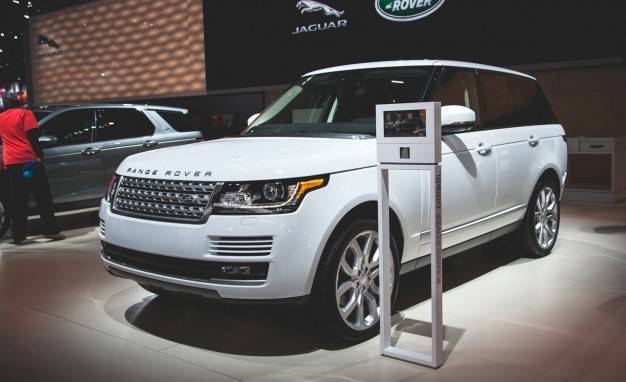
The long-awaited Ranger Rover and Range Rover Sport diesels are arriving on American shores in fall 2015 as 2016 models. The new diesel engines will only be available on the mid-level HSE trims and they are currently making their debut at the 2015 Detroit Auto Show.
The power output from this power plant is an acceptable 254 horsepower, but with all diesels, the strength of the engine can only be judged by its torque output. In the two Range Rover models, the engine produces a competitive 440 lb.ft. of torque at 1750 RPM, which places it right in between the Audi Q7 3.0 TDI, BMW X5 3.0 TDI and Mercedes-Benz GL 350 BlueTec. Like its gasoline counterparts, the diesel Range Rover models come standard with ZF sourced eight-speed automatic transmission with paddle shifters.
0 to 60 MPH is achieved in 7.1 seconds for the Range Rover Sport and 7.4 seconds for the Range Rover. The gasoline powered V6 Range Rover Sport and Range Rover complete the task in 6.9 seconds and 7.1 seconds. This means the difference between the two versions is only 0.3 seconds.

Thanks to the new diesel engine, the Range Rover and Range Rover Sport see an increase in fuel efficiency of 32% when compared to the gasoline V6 engine. The overall fuel mileage also increases to 22 city, 28 highway and 25 combined. With this new found efficiency, the two Range Rover models can now travel up to 658 miles on a single tank of diesel.
The TDI V6 is a whole new design constructed out of compacted graphite which is more durable compared to the traditional iron and aluminum engine blocks. This engine has been available to global consumers for the past two years already, but before it makes its debut on American shores, Land Rover engineers have made minor modifications to make the engine compatible with the strict American efficiency standards.

U.S. Spec Range Rover HSE TDI V6 comes standard with a water-cooled turbocharger which also includes new bearings, vanes, and nozzles to increase the efficiency of the engine. As with all modern diesel engines, the engine in the new Range Rovers is fitted with exhaust scrubbing urea after treatment to reduce the amount of carbon monoxide from the exhaust. The urea tank is fitted in the engine compartment and needs to be refilled after 10,000 miles. The Range Rovers also come with a new EGR or Exhaust-Gas-Re-circulation system which recaptures exhaust gases after the diesel particulate filter and pulls the gases directly from the hot manifolds before feeding them back to the turbos to extract as much energy as possible from the gases before they leave the vehicle. Also, to maximize the amount of fuel flow into the engine, the engineers at Land Rover have upgraded the fuel system with a two-stage oil pump and revised fuel injectors.
Around the world, Range Rovers are known for their luxurious features and not for their diesel engine clatter. So, the engineers have added dual-isolation engine mounts and acoustic laminate windshield to reduce the engine noise as much as possible. Also, to avoid confusion at the gas pump, the fuel filler module has a devise which prevents the narrower gasoline nozzle from entering the tank and only permits the larger diameter diesel fuel nozzle.
After years of asking, the Range Rovers are finally available with a diesel engine, but we are not sure if their timing was right or not. With the sharp decline in recent fuel prices, the advantages the diesel engine offer are almost nonexistent. With Premium Fuel averaging around $2.40/gallon and diesel still at or around $2.89/gallon, many consumers might find it hard to justify the additional costs of owning diesel powered Range Rovers over gasoline powered versions, but if your lifestyle includes a lot of commuting and you don’t like the concept of frequent fuel stops, then the diesel Range Rover is a no brainer.


